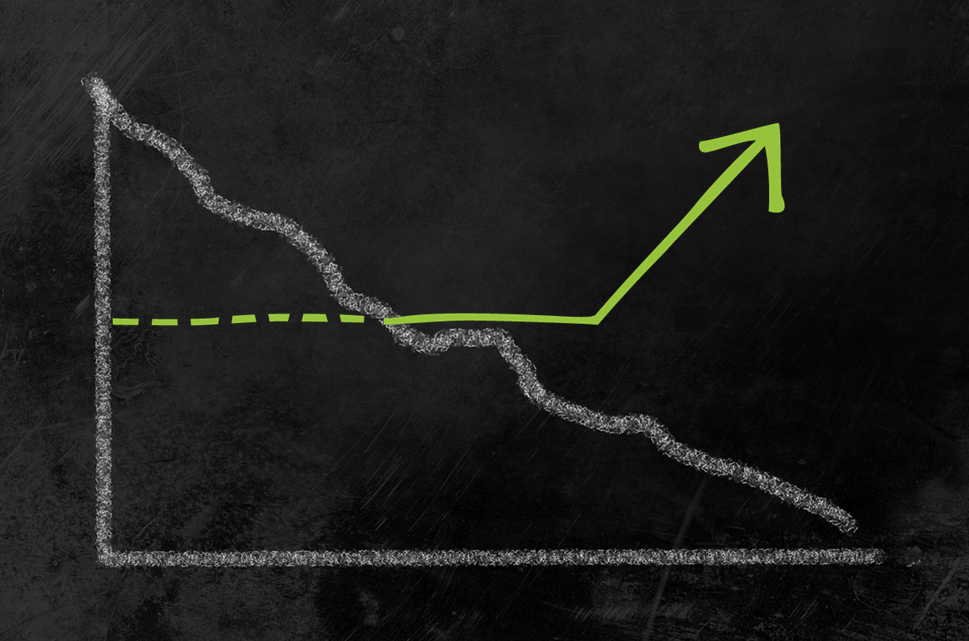It’s hard to imagine a world where Google’s search bar is a bygone internet icon, but traffic trends show the tides are changing and it could force marketers to spread their web content across channels more aggressively.
Don’t be mistaken – data showing that organic search visits decreased 7 percent in Q2 2014 doesn’t necessarily mean Google is losing its position of dominance or that it will take the backseat in SEO conversations. Instead, the latest research from the RimmKaufman Group (RKG) found that a significant slice of search volume is coming from mobile devices and paid ad campaigns, meaning marketers need to step up their organic games or diversify their content strategies.
Organic search share slips
Organic search now accounts for about 31 percent of all web queries, down from 36 percent in the Q1 and Q2 2013. Google still dominates these numbers, accounting for 81 percent of all organic traffic. However, even Google isn’t immune to these changes (and some might argue that it’s contributing to them). It’s seen the volume of natural queries drop 17 percent, Brafton previously reported.
The cause: Mobile traffic increase or data disappearance?
It’s not the case that people are using the internet any less or looking for information other places than search engines. So what’s behind this sudden about-face? There are two probable causes:
- Search behaviors are different. Mobile searches on smartphones and tablets now account for about 34 percent of traffic.
We shouldn’t be too surprised. This is exactly what Matt Cutts predicted last year, when he said mobile traffic would eclipse desktop visits faster than marketers anticipated. Now that more than half of all Americans have smartphones and 42 percent have tablets, it’s a natural transition away from stationary PCs to mobile devices for everyday queries.
 The data is misleading. RKG pointed out that Google now withholds keyword data from 90 percent of queries, and a recent study estimated about 60 percent of organic traffic may be misattributed as direct visits. So it may look like organic search is down, but perhaps it’s the case that organic visits are being classified under the wrong category.
The data is misleading. RKG pointed out that Google now withholds keyword data from 90 percent of queries, and a recent study estimated about 60 percent of organic traffic may be misattributed as direct visits. So it may look like organic search is down, but perhaps it’s the case that organic visits are being classified under the wrong category.
Study says paid search is growing, but are users clicking?
RKG makes an argument that organic traffic is down because paid search traffic is rising. But this conflicts with long-standing data that users largely ignore paid content, let alone click on it. Brafton reported that 36 percent of consumers don’t recognize paid ads in search results pages, and studies estimate users only click on paid links 30 percent of the time.
However, some search marketers suspected that Google was doctoring its results pages to make its ads stand out more than organic content.
In the new search environment, you can’t rely on text-content alone to dominate SERP real estate
How to prepare your website
- Don’t get left behind: Optimize your website for desktop and mobile searches. Conduct some tests from smartphones and tablets to see how your pages appear to end-users. Remember that you have a matter of seconds to impress desktop searchers, and even less time to engage mobile visitors. Make sure people can easily navigate from one section to the next and perform all of the actions you want them to take on the site.
- Diversify your strategy: In the new search environment, you can’t rely on text-content alone to dominate SERP real estate. You should take advantage of the rich media Google displays in results pages, including images, videos and local listings.
For more ideas about how to adapt your SEO strategy, check out this blog about why you don’t need to rank No. 1 in search results anymore.





